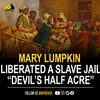Before returning to Mali to establish Lenali in 2017, a voice-based social media app, Mamadou Gouro Sidibé was working at the French National Center for Scientific Research.
As lucrative as his job was, Sidibé identified a gap in the digital space in his native country, where social media platforms are not accessible to the uneducated or illiterates.
The idea to develop Lenali came to him when a grocery store owner pleaded with him to read a Viber message he had received because he couldn’t read. “That’s when it clicked: I’m running after tools that are not understood yet,” Sidibé told Los Angeles Times.
To make the app accessible to those without formal education, Lenali is integrated with local languages such as Bambara, Soninke, Songhai, Mooré and Wolof as well as French. Also, it is recognized as the world’s first voice-based network available in multiple West African languages, according to the Los Angeles Times.
Sidibé, an IT engineer by profession, said the app has the potential to change the way business is done in West Africa. He told Africa Renewal Magazine the overriding aim of his app is to also increase inclusion in Mali and Africa as a whole. “The problems in Mali are the same in the majority of countries in Africa, the app could work anywhere, and in the future, we can add many languages,” he said.
Mali has a population of 18 million with less than 50% of them being literates, according to UNESCO. This means that not many Malians can read or write, thereby limiting their ability to use the internet. For instance, despite the popularity of Facebook in West Africa, its penetration in Mali is less than 12%.
Social groups such as the National Network for the Development of Young Girls and Women of Mali, are using Lenali for social mobilization. “An essential part of the information we publicize is about reproductive health, gender-based violence and literacy,” said Hawa Niakate and Aminata Camara, who work for the organization. “We use Lenali social network to reach everyone.”
A Lenali user, Ada, said she advertises services and produce such as vegetables on the platform. She records her voice in a local language and posts the messages on the platform, with the goal to reach scores of users.
There are already existing apps like Viber that allows people to communicate by recording voice. But what sets Lenali apart is the fact that users can build a profile using audio.
So far, the app has over 50,000 users, mainly from Mali and part of the diaspora. Sidibé is, however, optimistic that the app will reach millions of people across the continent in the near future. He recently recalled the challenges he encountered in creating the app, noting Mali had no incubators to assist early startups. “Perhaps my projects would have been more successful with the support of an incubator,” he said.








